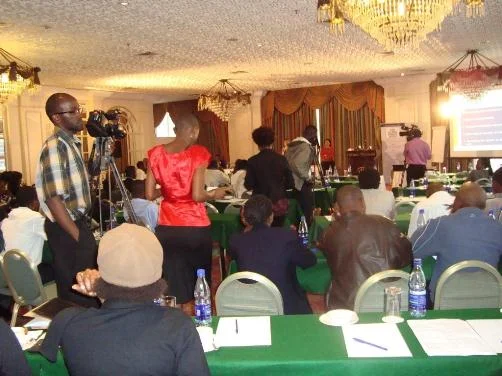In her welcome remarks, Ms. Muthoni Wanyeki, the Executive Director of the Kenya Human Rights Commission (KHRC), focused on demystifying the confusion and misunderstanding that exists around the International Criminal court ICC (ICC) process. “What are we meant to do for the majority of victims whose cases will not be at the ICC?” she asked.
The conference sought to address the Kenyan situation and analyse critically the ICC’s mandate in Kenya. It also sought to reflect on the general outcome of the PEV and look into the achievements of the Commission of Inquiry on the Post Election Violence (CIPEV) and the human rights fraternity in assisting the ICC in its investigations. The ICC was deemed to be governed by four key principles namely: impartiality; admissibility of evidence; stringent checks and balances and individual criminal responsibility.
Among the issues discussed were:
The process and prospects of the ICC in Kenya; International, regional and municipal instruments of international criminal justice and reflections on the ICC situation in Kenya; the ICC versus the African Union (AU) interplay in Kenya situation; International criminal trials (e.g. ICTR experience) and the future of international criminal justice system by looking at the ICC process in Kenya; and the way forward on justice and politics in Kenya after the post-election violence.
On the issue of ICC versus the AU interplay in the Kenyan situation it was noted that some African leaders are poised to be exploiting gaps in criminal accountability situations to undercut the pursuit for justice by presenting the ICC as a new form of imperialism that should not be supported.
During the question and answer session, the two ICC officials clarified on the cases to prosecute. They said that investigations are still going on since April and the cases for prosecution will be known once the investigations are complete. However, the OTP started by investigating all allegations, they narrowed down to more serious incidences and finally the OTP has settled on two cases which are the gravest. However they would not divulge the details at the time but it i now public what these cases were.


